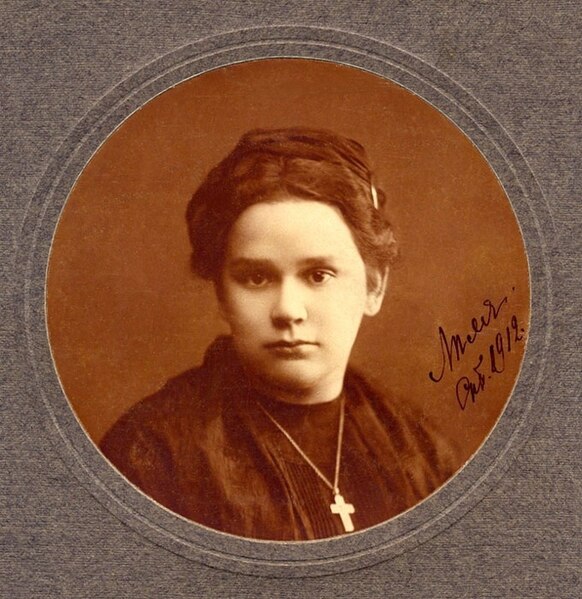Occasionally you stumble across some historical story so weird it could only have happened in in real life. Exhibit A: the mysterious lover of Nikolay Gumilyov.
 |
| Nikolay Gumilyov |
Who was Nikolay Gumilyov? Born in 1886, he grew up well educated and began writing poetry at a young age, becoming first published, in fact, at around age 16. Gumilyov spent much of his life as a man of letters and established poet, but he also served in the Russian cavalry in WWI. He was
executed in 1921 on suspicions of being part of a monarchist conspiracy.
When he was still a young man and writing for a journal called
Apollon, he fell in love with the author of some poems which had been submitted for publication. Here I quote
Wikipedia:
In August 1909, the famous Russian artistic periodical Apollon received a letter with verses on a perfumed paper with black mourning edges, signed only by a single Russian letter Ch.
The verses were filled with half-revelations about its
author—supposedly a beautiful maiden with dark secrets . . . Over the next few months,
publications of the newfound poetic star were the major hit of the
magazine, and many believed that they had found a major new talent in Russian poetry. The identity of the author was slowly revealed: her name was Baroness Cherubina de Gabriak, a Russian-speaking girl of French and Polish ancestry who lived in a very strict Roman Catholic
aristocratic family, who severely limited the girl's contacts with the
outside world because of an unspoken secret in her past. Almost all of Apollon’s male writers fell in love with her, most of all the great poet Nikolai Gumilyov. He wrote a series of passionate love letters to her and received quite passionate answers.
The mystery of the newfound genius was short-lived. In November it was discovered that the verses were written by a disabled schoolteacher, Elisaveta Ivanovna Dmitrieva, with the participation of a major Apollon contributor and editor, the poet Maximilian Voloshin.
Apparently, Voloshin and Dmitrieva came up with this scheme as a sort of publicity stunt in order to get her published. Gumilyov, as you can imagine, was not amused. The fallout between him and Voloshin eventually led to a duel, which (fortunately) did nothing to help sore feelings but at least resulted in no casualties, as Gumilyov missed and Voloshin couldn't handle a gun.
 |
Elisaveta Ivanovna Dmitrieva, AKA
Cherubina de Gabriak |
You can read more about the love triangle
here. It's quite a soap opera and makes the Charlotte Bronte's "Currer Bell" seem mild by comparison!





Comments
This was interesting. It's too bad during her lifetime that her writing found little favor, but apparently now her poetry is gaining some recognition. It appears that scandals back then had longer lasting ramifications than today's social media scandals. Heck, we forget and move on to the next scandal in rotation by the following news cycle! Very intriguing post.